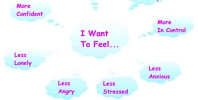|
|
 Acne (1,500) Acne (1,500)
 Addictions (1,500) Addictions (1,500)
 Advice (1,500) Advice (1,500)
 Allergies (1,092) Allergies (1,092)
 Alternative Medicine (1,500) Alternative Medicine (1,500)
 Anti Aging (1,500) Anti Aging (1,500)
 Breakup (1,500) Breakup (1,500)
 Cancer (1,499) Cancer (1,499)
 Dental Care (1,500) Dental Care (1,500)
 Disabilities (1,500) Disabilities (1,500)
 Divorce (1,500) Divorce (1,500)
 Elderly Care (1,498) Elderly Care (1,498)
 Goal Setting (1,500) Goal Setting (1,500)
 Hair Loss (1,500) Hair Loss (1,500)
 Health and Safety (1,497) Health and Safety (1,497)
 Hearing (1,500) Hearing (1,500)
 Law of Attraction (1,499) Law of Attraction (1,499)
 Marriage (1,500) Marriage (1,500)
 Medicine (1,497) Medicine (1,497)
 Meditation (1,499) Meditation (1,499)
 Men's Health (1,500) Men's Health (1,500)
 Mental Health (1,500) Mental Health (1,500)
 Motivational (1,500) Motivational (1,500)
 Nutrition (1,495) Nutrition (1,495)
 Personal Injury (1,499) Personal Injury (1,499)
 Plastic Surgeries (1,500) Plastic Surgeries (1,500)
 Pregnancy (1,496) Pregnancy (1,496)
 Psychology (1,500) Psychology (1,500)
 Public Speaking (1,500) Public Speaking (1,500)
 Quit Smoking (1,500) Quit Smoking (1,500)
 Religion (1,499) Religion (1,499)
 Self Help (1,500) Self Help (1,500)
 Skin Care (1,500) Skin Care (1,500)
 Sleep (1,500) Sleep (1,500)
 Stress Management (1,500) Stress Management (1,500)
 Teenagers (1,492) Teenagers (1,492)
 Time Management (1,500) Time Management (1,500)
 Weddings (1,500) Weddings (1,500)
 Wellness (1,500) Wellness (1,500)
 Women's Health (1,500) Women's Health (1,500)
 Women's Issues (1,500) Women's Issues (1,500)
|
To make people less miserable, or as he put it, to bring people from minus five to zero. We can do better than that, he said. Lets work to promote strengths, to make people happier, to bring people up from zero to plus five. In his 2002 book, Authentic Happiness, he suggested that there are three components of happiness: pleasure, doing what makes you feel good; engagement, satisfying involvement with people, work, and hobbies; and meaning, devoting your old_resources to a purpose greater than yourself. Pleasure, he observed, is the least important of the three. That observation led to the development of happiness exercises, things we can do to make ourselves happy, that had more to do with relating than pleasure-seeking. Doing acts of kindness, expressing gratitude to mentors, and forgiving those who hurt you were among the recommendations. Another psychologist, Mihaly Csikszentmibalyi, summarized the findings of positive psychology this way: Almost every person feels happier when theyre with other people. Like Martin Luthers drunk who kept falling off one side of the horse, then the other, Christian counselors can respond to this new focus in psychology in one of two foolish ways. The more conservative among us might point out that God did not send a Happy Spirit to make us happy, He sent the Holy Spirit to make us holy, and then they might proceed to beat us up with rules. Others will want to look for biblical parallels. Getting outside of yourself is a good thing. So is forgiving an abuser and thanking a mentor. Lets integrate positive psychology into our counseling. If were to stay in the saddle of a Christian worldview, I suggest two responses. First, lets welcome the focus on joy. Treating pathology to return us to normal zero is a legacy of Freud that needs to be discarded. As Christians, were invited to drink from living waters, to at least sip from the fountain of joy until we get home, where well get drunk forever on divine wine. As Lewis put it, the serious business of heaven is joy. Second, lets insist that real joy can never be manufactured. But counterfeit joy can. And counterfeit joy can become our obsession and keep us from the real thing. The real deal flows out of worship, out of valuing God more than anyone or anything else, even more than the experience of happiness. And the prelude to worship is brokenness, then repentance, then surrender. Miss a legitimate affirmation of joy and we deny that God is happy. The spiritual journey then becomes nothing more than duty. Miss the necessity of brokenness in our pursuit of joy and we deny that God is holy. We end up asking our counselors and pastors and spiritual leaders to tell us pleasant things, prophecy illusions, stop confronting us with the Holy One of Israel (Isaiah 30:10,11). But let joy and holiness kiss¦ and a wonderful romance begins. Online counseling is always available to help you out. Larry Crabb, Ph.D., well known author, speaker, and psychologist, asks hard questions and seeks to understand the path to true wholeness. His book, Shattered Dreams, launched New Way ministries, through which he offers training in Spiritual Direction and explores the mystery of Spiritual Formation. He is pleased to serve as Spiritual Director of AACC.
|
|
|



